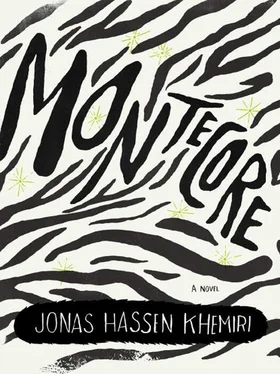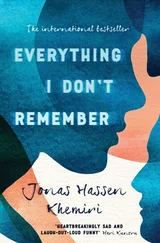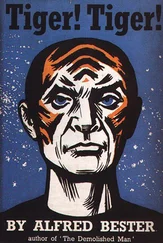Do you want to know what your father’s camera registered? Everything. Absolutely everything. The beauty in his photographic rolls prophetizes his future success. There are smiling restaurant owners, winners of fishing contests, cliff-diving young boys. There are hundreds of photos of birds’ silhouettes in the laying of the sun. There are British tourists numbed in the hashish intoxication of the beach. There I am, your father’s best friend. With the mouth-gap cigarette, squinting eyes against the light, beige army shirt, in the company of two sauce-red, big-smiling Germans. Or with my newfound poker partners who shared my company when your father photoed. And there is, of course, his self-produced personal portrait, in black-and-white blurriness with the grown-out curls, the meticulous, melancholy Otis look, his outfit the shabby European standard — V-shaped pants, tight white T-shirt, and softly smooth leather sandals.
Sometimes your father made solitary nocturnal expeditions up to Kroumirie Mountain to document the splash of mountain rivers, the water fetching of farm wives, the morning dawn of mosque minarets, and the waving arms of wheat fields. He came home to the paillote in the dawning light with lips grinning gladly and newly invested bread under his arm.
Here it is proposed that we inject some photo taken with your father’s first camera. What do you think about the scanned picture that is corresponded you here? It visualizes your father and me in a hotel room belonging to a very overweight Belgian touristette. The sharpness quality is not ideal but certainly the nostalgia value is adequate for publication?
Daily life continues with fluctuating seasons and years; Bourguiba is electered for permanent lifetime to be president, Tabarka’s tourist industry grows steadily in similarity to your father’s photo collection. The whole time he has the ambition of saving his economy and crossing Tunisia’s borders for an international photographic career.
A doubting reader might shout: “Then why doesn’t he go abroad? Why does he remain in Tabarka if his enticement to the outside world is so well formed?”
This will be the book’s response:
“Dear reader. You must NOT believe that my father was of the sort that the Germans dub ‘Hähnchen’ or the Brits call ‘chicken boy’ or the Swedes put to sound as ‘hare.’ To define these years as lost or unproductive would be a lie that is not true. Certainly my father’s words about the future may have overstepped the number of ready-to-print photos. Certainly he invested broad economy in umbrella drinks and presents to miscellaneous touristettes. Certainly he consumed frequent daily beers in Kadir’s company and sometimes slouched his evenings in the vapors of hashish. But I auction with stately tongue: Who did not do thus in his days of youth? I must also call attention to my father’s planning talent! With the single-mindedness of the German and the taste for organization of the Swede, my father initiated mental preparations which would realize his international photographer career.
“Most important was language; Abbas was his own professor and his impressive dressage of the world’s tongues was … impressive. Still today he makes a habit of spreading the citation ‘What is language if not the picklocks’ locks to the keys of doors where the souls of different people live (or rest)?’
“While some fellow countrymen confused themselves further in the muddle that we can call political fundamentalism, Abbas anointed many a dinar and hour to touristic phrase-book compositions invested from Tabarka’s bookstore. With guidebooks for different countries his tongue perfectioned vital photo phrases in English, German, Spanish, Italian, and Russian. With the cowboy’s confident hat lift he practiced, ‘Hey, nice beautiful girl, how are you, do you want to please be a supermodel?’ With the Spaniard’s bullfighting smile he lisped, ‘¿Dónde está el museo de arte?’ With the Italian’s straight-backed stiff tongue he expressed, ‘Aspetti! Può parlare piu lentamente, per favore?’ And in front of the mirror he bounced his hand against the tennis racket of his imagination and asked himself, ‘Tennis willst Du spielen?’ The perfection of French was of course already my father’s private property.
“With control of the languages Abbas also expanded his broadness to investments in French fashion magazines. It was here where, in 1976, he was blinded by a photograph of a very attractive Brazilian. Her name was spelled Silvia and the article summarized how she had recently advertised her alliance of love with the king of Sweden. Did this influence Abbas’s future? Perhaps. But probably not. More vital was probably the biography dedicated to his idol Robert Capa, which Abbas read again and again. Capa, the master photographer with the velvet gaze, who documented everything from the Spanish Civil War to D-Day, who enjoyed Hemingway’s close friendship and Ingrid Bergman’s close love …
Let me present:
My father!
“A symbol for the globally modern meeting place where East crosses West, where Jesus crosses Muhammad, where redemption is a rendezvous in symbolic manly form, a little like the Lionel Richie of race and music!”
Hmm … I hope you do not perceive this section as on the quarrely side? With consideration for what happens later it is vital that the reader understand those dreams that burned your father’s breast when he was young.
The next scene welcomes the reader to the end of the summer of 1976. It is the year that the whole world suns itself in KC and the Sunshine Band, the year that terrorist groups like the PFLP, the Carlos group, and the Baader-Meinhof group fear-fill the world with hijackings, kidnappings, and bombings. The year that both your father and I have begun to grow our youthfully squared bodies to a certain bartender corpulence. But our mentalities are still constant. Neither religion, politics, nor tradition stops us from celebrating nights in the bonfire shine of beaches with soft touristettes in bikinis. Waves wash, someone’s guitar clinks “Lay, Lady, Lay,” a pipe is passed around, and discussions of harmony consider life’s shortness, the West’s stress, and the Orient’s beneficial mystique. This was a repeated subject that the tourists wanted to round up, and we chorused along with them. Even if your father had begun to grow his irritation about everyone’s constant focus on the vital difference between our world and theirs.
Suddenly I see your father, orangely fire-lit on the other side of the bonfire with the star frame of the night. His eyes, which normally usually seek the touristette with the night’s largest bosom, have suddenly relinquished their looking-around quality. Instead he is sitting with his back stretched like a hyena and his eyes magnetized to a group of women at the outer edge of the group. I remember distinctly his moistened lips and his swallowing throat. Then he advances his body, step by step, nearer and nearer the women, whose voices speak a language that to me sounds like singing in the tones dutty-dutty-dutty-dutt .
The special thing about this episode is that it is suddenly as though your father’s courting quality is kidnapped. When he is about to act his “poetically wounded Casanova with horizon gaze” he happens to break a wineglass and almost gets shards in his foot. In the stumble of the sidestep he places his hand on a burning fire log, and when his body finally achieves balance and advances toward the giggling women, they all turn down a swig from his wine bottle. And your father?
The quality courter just stands there, with soft jeans rolled up and the wind softly blowing his curls. His hands seem to be two too many, his foot digs in the sand, his teeth bite his upper lip and …
Читать дальше










